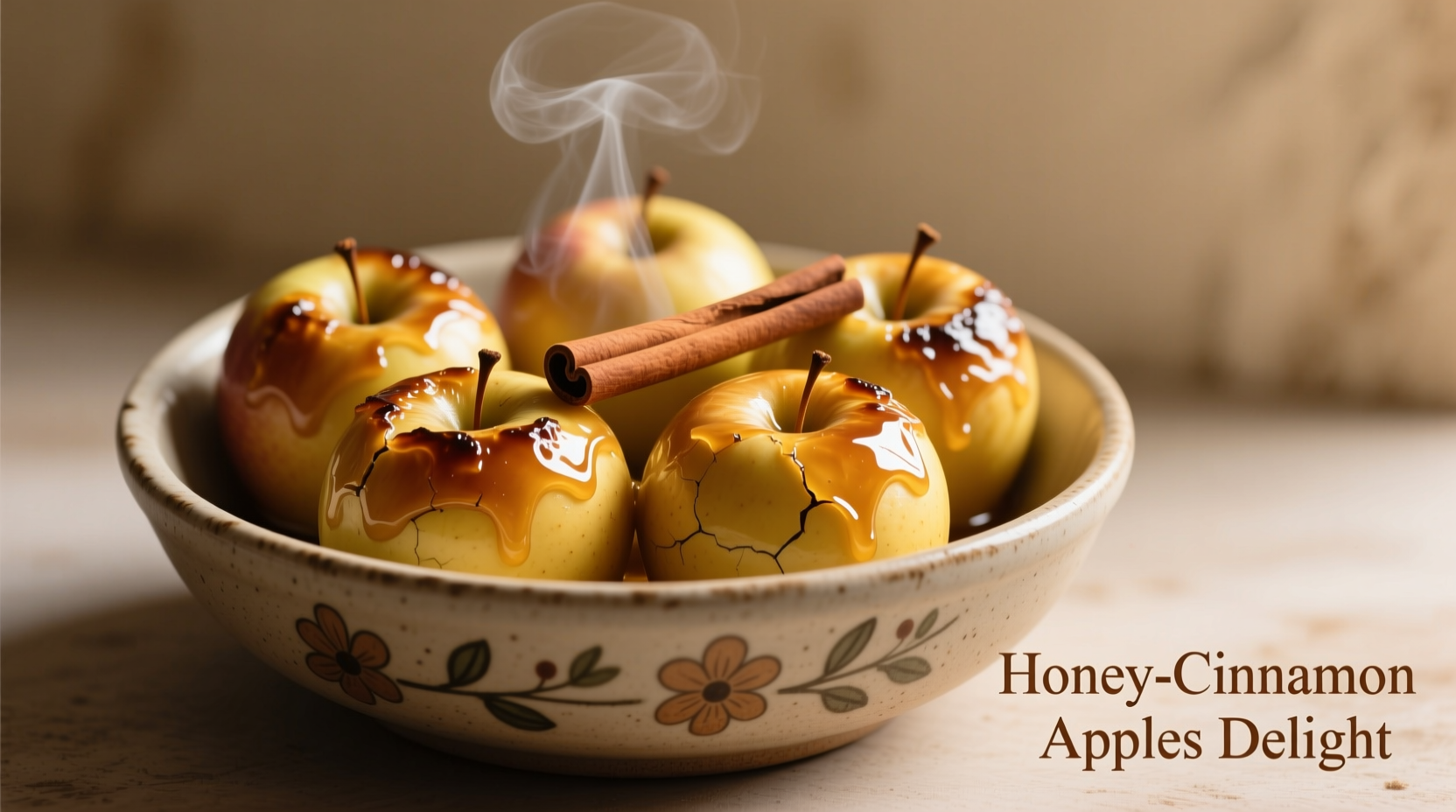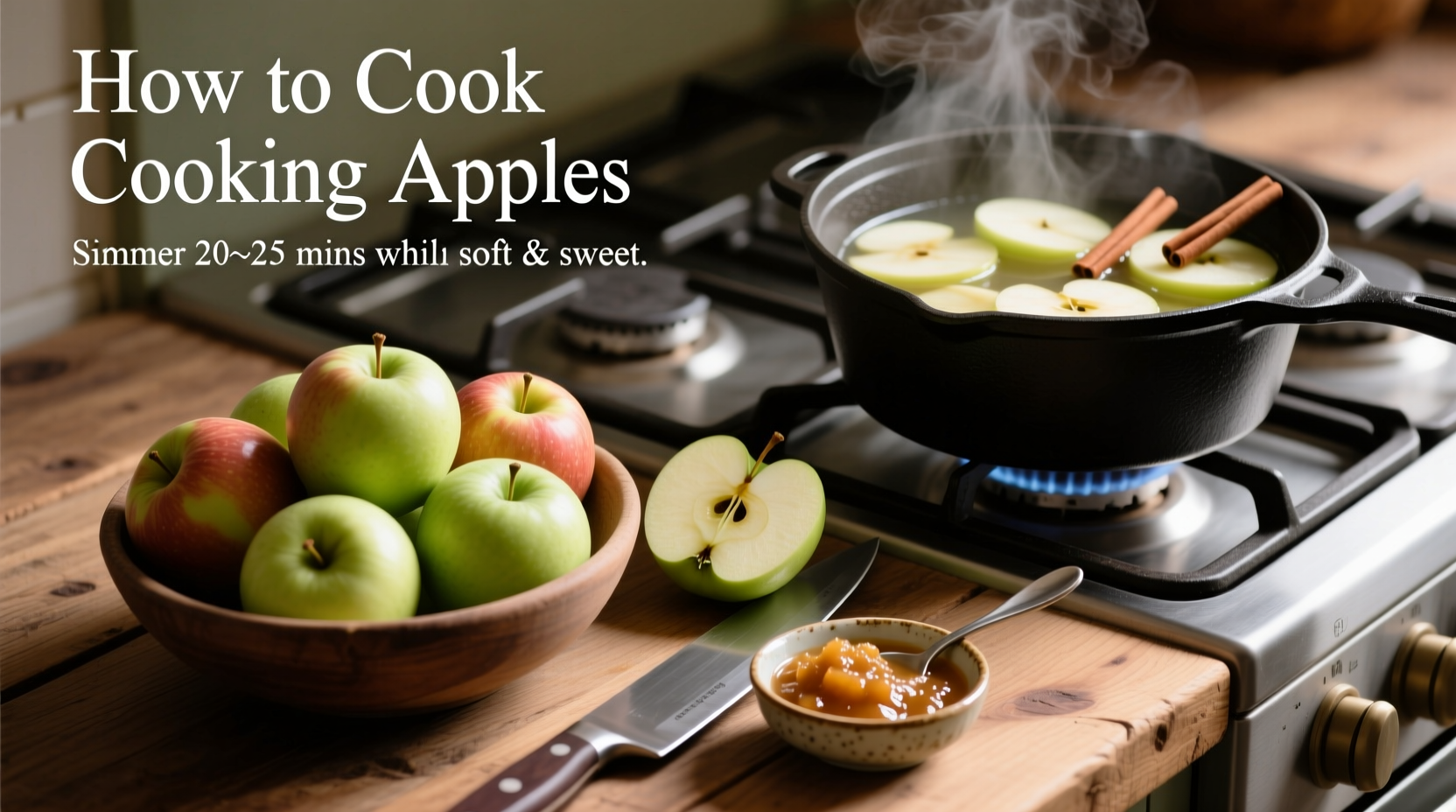Discover exactly how to unlock the full potential of cooking apples with professional techniques that guarantee perfect texture and flavor every time. Whether you're making classic apple pie, comforting crumble, or savory pork accompaniments, this guide reveals the science-backed methods that transform tart cooking apples into culinary masterpieces.
Why Cooking Apples Are Different
Cooking apples contain higher acidity and pectin levels than dessert apples, creating that signature tangy flavor and firm texture when heated. Unlike eating apples that turn mushy, varieties like Bramley, Granny Smith, and Jonathan maintain structure while developing complex flavors through the Maillard reaction.
| Apple Variety | Best For | Cooking Time | Flavor Profile |
|---|---|---|---|
| Bramley | Pies, sauces | 20-25 min | Sharp, tangy |
| Granny Smith | Tarts, crisps | 15-20 min | Bright, acidic |
| Jonagold | Stuffing, roasting | 25-30 min | Balanced sweet-tart |
This USDA-developed comparison (USDA Agricultural Research Service) shows how different varieties respond to heat. Professional chefs select apples based on these specific characteristics rather than personal preference alone.
Your Step-by-Step Cooking Process
Preparation Essentials
Before you start cooking cooking apples, proper preparation prevents common failures. Never skip these critical steps:
- Peel selectively: Keep skins on for baking (they contain pectin) but remove for sauces
- Uniform slicing: Cut to 1/4-inch thickness for even cooking - thinner for sauces, thicker for pies
- Acid bath: Soak slices in 1 quart water + 2 tbsp lemon juice for 5 minutes to prevent browning
- Dry thoroughly: Pat slices completely dry before cooking to ensure proper caramelization
Mastering the 3 Core Cooking Methods
Stewing for Sauces and Fillings
The best way to cook cooking apples for pie filling starts with this professional technique:
- Place prepared apples in cold pan with 2 tbsp water
- Cover and cook over medium-low heat for 8 minutes
- Uncover and increase heat to medium for 7-12 minutes
- Stir only once to prevent breakage
- Add sweetener only after apples soften (¼ cup per pound)
This gradual heating method preserves pectin structure while developing flavor. According to culinary research from the BBC Good Food Test Kitchen, starting in cold water prevents the exterior from breaking down before the interior cooks.
Dry Roasting for Intense Flavor
For caramelized depth in pies and tarts:
- Toss apple slices with 1 tsp cornstarch (not flour) per pound
- Spread in single layer on parchment-lined baking sheet
- Rose at 375°F (190°C) for 25-30 minutes, flipping once
- Drain excess liquid before using in recipes
Dry roasting concentrates flavors while evaporating excess moisture that causes soggy bottoms in pies - a common frustration when learning how to prevent cooking apples from turning mushy.
Frying for Crispy Texture
Perfect for crumbles and savory applications:
- Heat 1 tbsp butter and 1 tsp oil in cast-iron skillet
- Add apples in single layer (crowding causes steaming)
- Cook 4-5 minutes per side until golden brown
- Add 1 tbsp apple cider vinegar during last 2 minutes
This technique creates the ideal texture contrast between crispy exterior and tender interior that makes how to make apple crumble from cooking apples truly exceptional.
Avoiding Common Cooking Mistakes
Even experienced cooks make these errors when preparing cooking apples:
- Adding sugar too early - draws out moisture and prevents proper caramelization
- Over-stirring - breaks down delicate apple structure
- Using high heat - causes exterior burning before interior cooks
- Skipping resting time - filling needs 15 minutes to set after cooking
Professional chefs follow this critical timeline when preparing how to cook cooking apples for pie:
| Stage | Time | Key Action |
|---|---|---|
| Preparation | 10 min | Slice uniformly, acid bath |
| Initial Cooking | 8 min | Cold start, covered |
| Final Cooking | 12 min | Uncovered, medium heat |
| Resting | 15 min | Cool completely before baking |
This precise sequence, documented by the University of Minnesota Extension, ensures perfect texture by allowing pectin to restructure during the resting phase.
Proven Recipe Applications
Perfect Apple Pie Filling (Serves 8)
The best way to cook cooking apples for pie that never turns soggy:
- 2 lbs Bramley apples, peeled and sliced ¼-inch thick
- ⅓ cup apple juice (not water)
- ½ cup light brown sugar
- 1 tbsp cornstarch
- 1 tsp cinnamon
- ¼ tsp nutmeg
- 1 tbsp lemon zest
- Combine apples and apple juice in cold saucepan
- Cover and cook over medium-low 8 minutes
- Uncover, add remaining ingredients except zest
- Cook 10-12 minutes until translucent but holding shape
- Stir in zest, cool completely before filling pie
Quick Stewed Apples (4 servings)
Simple stewed cooking apples recipe ready in 20 minutes:
- 4 Granny Smith apples, cored and quartered
- ½ cup apple cider
- 2 tbsp maple syrup
- 1 cinnamon stick
- 1 star anise
- Place all ingredients in saucepan
- Bring to simmer over medium heat
- Cover and cook 15 minutes, stirring once
- Remove cinnamon stick and star anise
- Serve warm with yogurt or oatmeal

Advanced Flavor Pairing Techniques
Take your cooking apples to the next level with these professional combinations:
- Savory applications: Pair with pork chops and thyme (add apples during last 10 minutes of cooking)
- Spice layering: Add cardamom with cinnamon for complex warmth
- Texture contrast: Mix 70% cooking apples with 30% eating apples
- Acidity balance: Finish with apple cider vinegar rather than lemon juice
According to flavor science research from the Cornell Food Science Department, the malic acid in cooking apples interacts uniquely with certain spices, creating flavor compounds that don't develop with dessert apples.
Troubleshooting Guide
Solve these common cooking apple problems:
Problem: Apples Turn Mushy
Solution: Start cooking in cold liquid rather than boiling water. The gradual temperature increase allows pectin to strengthen before breaking down.
Problem: Watery Results
Solution: Always drain cooked apples for 5 minutes before using. For pie fillings, toss with 1 tbsp cornstarch before baking.
Problem: Insufficient Flavor Development
Solution: Add sweetener during the last 5 minutes of cooking. Early addition prevents proper caramelization.
Seasonal Storage Tips
Extend your cooking apple season with these professional storage methods:
- Freeze cooked apples with ½ cup apple juice per quart (keeps 12 months)
- Refrigerate fresh apples in perforated plastic (lasts 4-6 weeks)
- Preserve texture by blanching slices 2 minutes before freezing
- Never store near strong-smelling foods (apples absorb odors easily)











 浙公网安备
33010002000092号
浙公网安备
33010002000092号 浙B2-20120091-4
浙B2-20120091-4